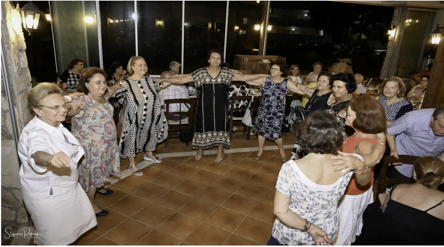The thematic workshop aimed to address the question of empowerment of the elderly also beyond pandemic situation.
Empowerment brings to senior citizens and their families higher independence and greater control of their own lives. By innovative tools (digital and non-digital) alternative care models that allow the discharge of the institutional health care are being developed and offer the possibility to older persons in making an informed decision on how they want to live their lives during increased healthy lifespan.
AIMS OF THE WORKSHOP
SIH EEIG – Reference Site Slovenia has organised, with the help of their Brussels liaison office SBRA, a thematic workshop, presenting the innovative practices from six Reference Sites from five countries and projects from the Active Assisted Living Programme. The audience was addressed by the speakers from the European Commission, Ander Elustondo Jauregui – DG SANTE, and Irina Kalderon Libal – DC CNECT with the most recent policy developments and upcoming opportunities for regions in the field of ageing and digital health. Following the opening presentation, two breakout sessions were moderated by experienced ERRIN representatives, leaders of the Health Working Group Lucie Durocher and Henriette Hanssen. The panellists from regionally and culturally diverse regions, namely Denmark, Sweden, two from Spain, Greece, Slovenia and AAL presented their inspiring practices of empowering the elderly, aligned also to thematics of the action groups, like adherence to prescription, independent living solutions, age friendly environments, integrated care and others. The final objective of vivid panel discussions where alternative care models were presented was, to send to the European Commission recommendations that would help shaping future policies that would enable the transfer of good practices into various cultural environments.
CONSLUSIONS
The panellists were discussing in details the psychosocial viewpoint of ageing such as motivation of older people, why they should use the various tools that are developed or share their health data. Doctors/carers and patients are in need of more personal contact and opportunities for more flexible programmes for funding that allow the consortium to produce solutions and outputs that are not pre-defined at the beginning of the project. A basic psychosocial skill that helalthcare professionals should be trained for is empathy. All these arguments point towards the need to rethink the investments in health. The idea was proposed that possibly, a ”Societal Deal” should be created to support societal transitions similarly to the recently launched “Green Deal”. A multiple approach in enabling older citizens to have better control of their lives is mandatory. Reference Sites showed a wide range of bottom up initiative and readiness to foster innovation, digital or non-digital also in prevention, thus extending the span of healthy years. Reference Sites have all the potential to help co-designing national and European policies as test beds.
The presentations and additional information can be found on a webinar page EIP on AHA and on RS Slovenia website.
Poročilo_Empowerment of older persons in regions _ EUROPEAN INNOVATION PARTNERSHIP
